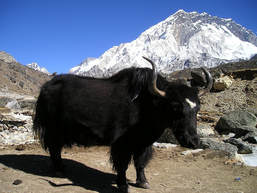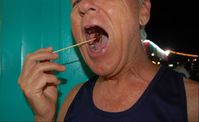
We’re talking about the Maya chaya, a maple-leaf shaped green known as tree spinach in México’s Yucatán Peninsula: a ‘miracle’ medicinal plant richer in iron than spinach and an excellent source of potassium and calcium. But beware: its leaves contain toxic hydrocyanic glycosides so boiling before consuming is a must.
Chaya is only one health food we’ve discovered on our winter sojourns to different foreign destinations over the years.

Always interested in improving our health, we had to try it. Buying Noni wine on the Sabbath from the shy wine-making Sisters in a coastal Ecuadorian convent is a memorable experience. Finding the nunnery was difficult; finally finding the door to the nunnery was like playing a game of Clue. Once inside, we carefully wound our way down a short flight of stairs where we spied a wooden turntable at waist level set into the wall to our right. We heard a hidden garbled female voice on the other side of the wall. Suddenly the turntable began to move, stopping in front of us. The table top held a menu with the name, description of available wines, and prices (about US $8).
After making our choices, we pushed the turntable back to the invisible waiting Sister(s). They pushed back our invoice; we pushed back our money. The final spin carried our order of wine. The transaction was wordless; we never saw the nuns.

Also well known abroad as one of Canada’s best-known health foods is maple syrup. When we’ve given it to friends in foreign countries, recipients quickly comment after tasting it, “oh, it’s too sweet!”
Does any reader out there know of another Canadian food we could pack as healthy gifts to foreigners? I've heard poutine is a prime example!
 RSS Feed
RSS Feed